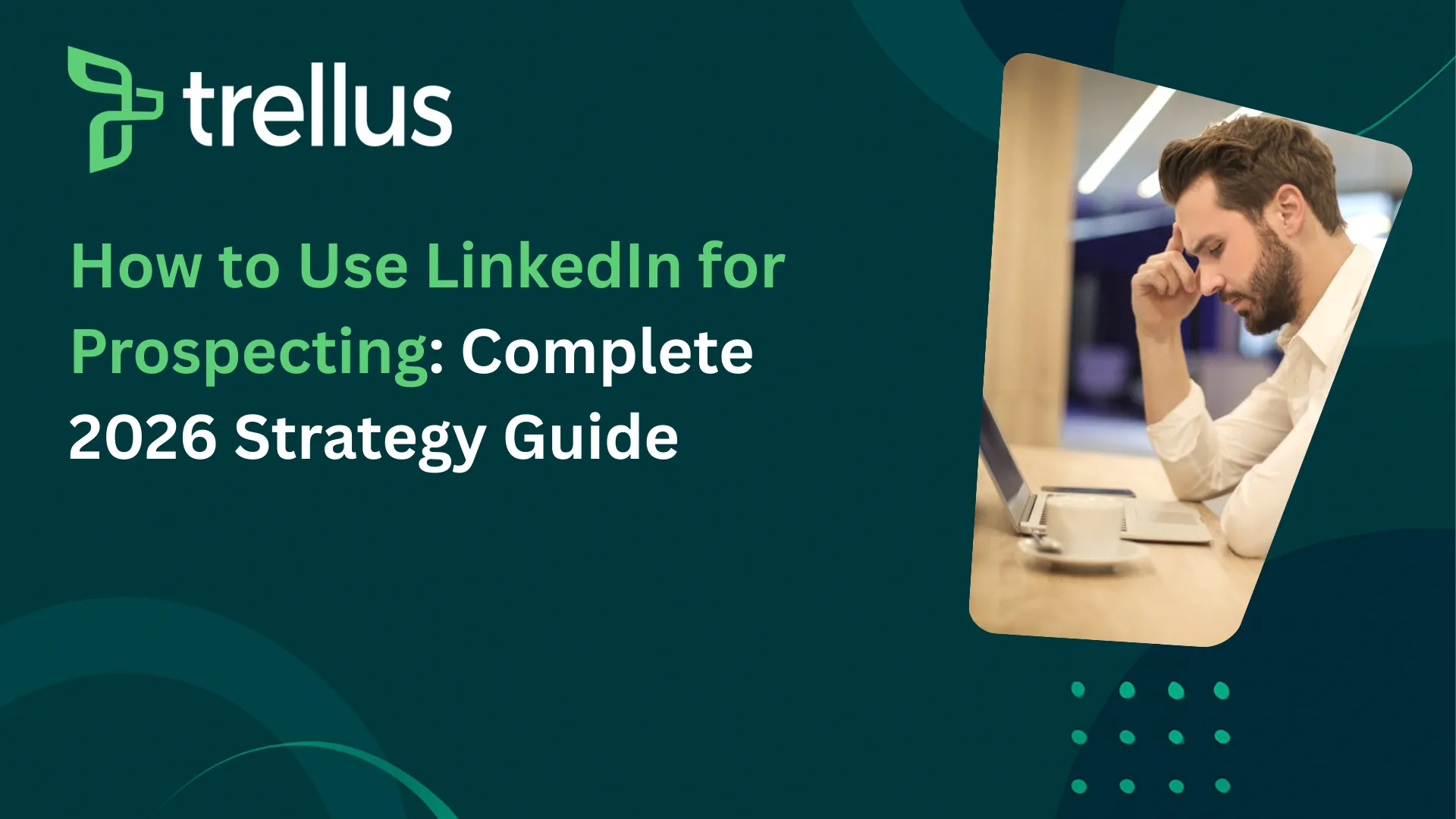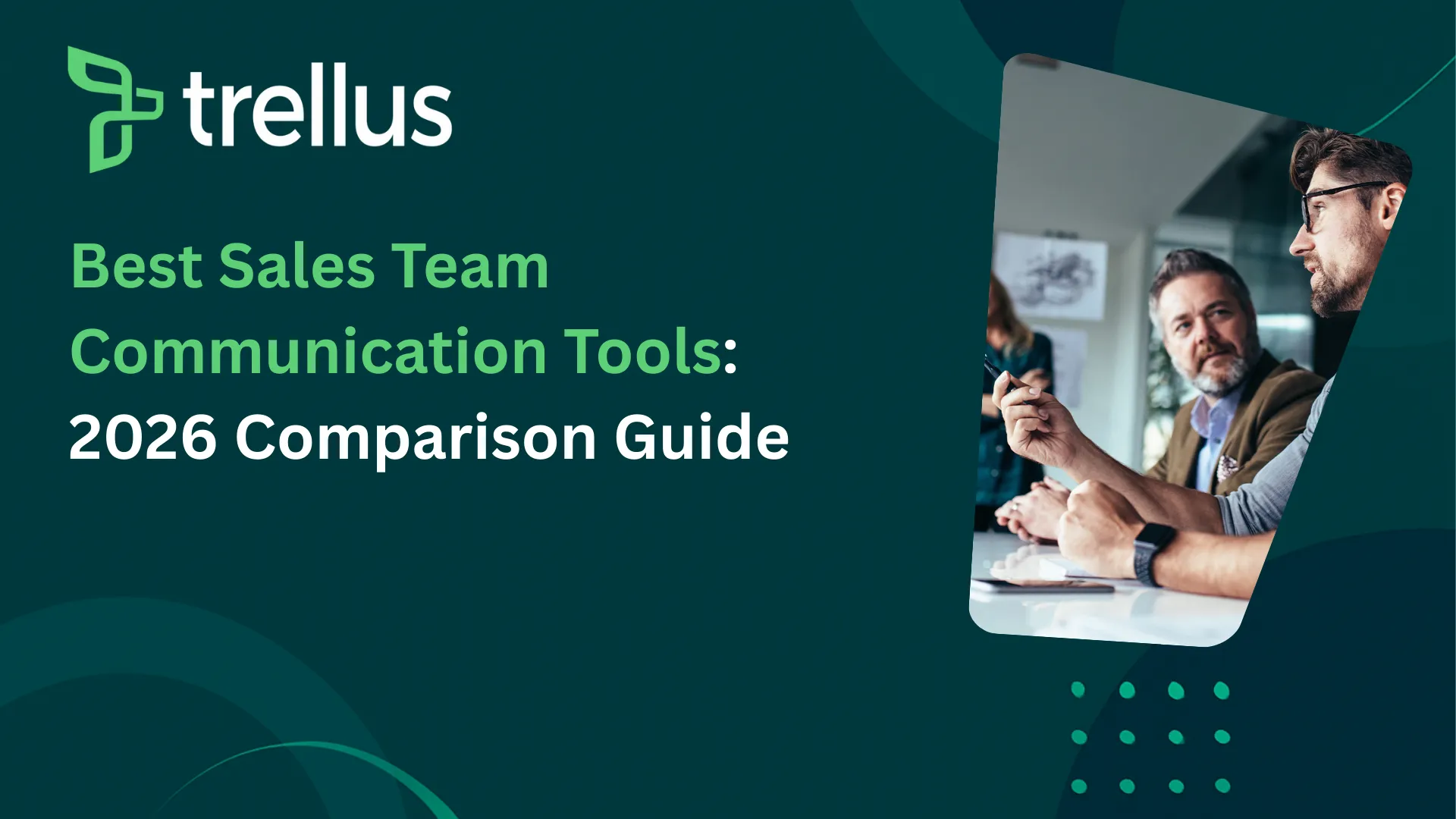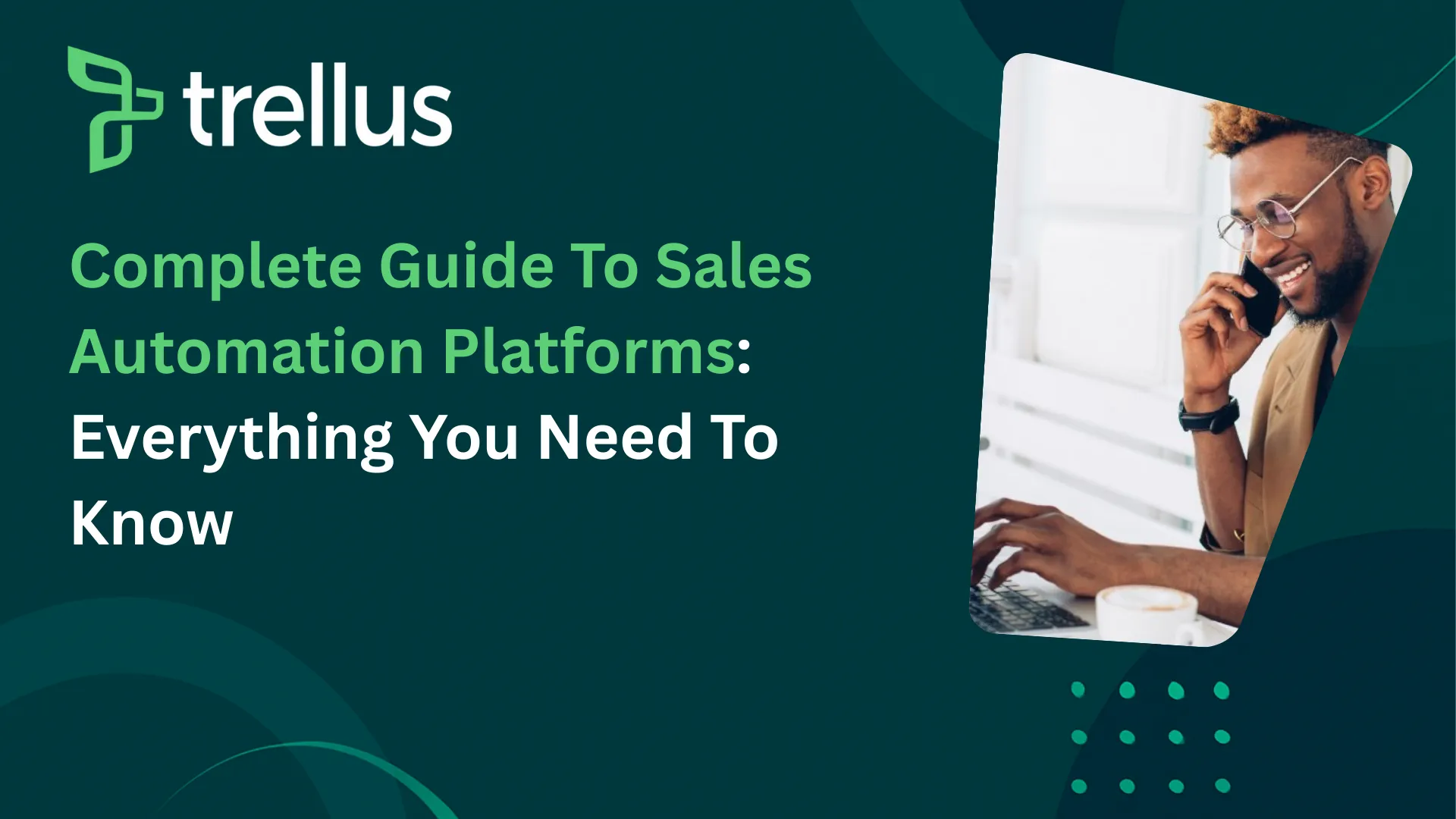
Our Top Picks


AI sales outreach is transforming how businesses connect with potential customers.
From prospecting to scheduling meetings, AI for outreach is making sales teams faster and more efficient.
As we’ve learned from our teen years, reading comic books, great power calls for greater responsibility - it applies to many real world scenarios and business practices these days.
On that note, companies using AI outreach tools must ensure fairness, transparency, and respect for privacy. After all, automated sales outreach shouldn’t come at the cost of customer trust.
This detailed post breaks down the key ethical challenges in AI-driven sales and how businesses can navigate them responsibly.
How AI Sales Outreach Works (And Why Ethics Matter)
.webp)
AI sales outreach software helps teams identify leads, personalize messaging, and automate follow-ups.
These tools scan millions of data points—social media profiles, company websites, CRM entries—to predict which prospects are most likely to convert.
For example, if a business hires a new executive, an AI outreach tool can flag this as a potential sales opportunity. It can also track buying behaviors, adjust recommendations based on seasonal trends, or shift preferences.
The efficiency gains are undeniable. Response rates can double when AI prioritizes high-intent leads. But without ethical safeguards, these same tools can misuse data, reinforce biases, or alienate customers.
Key Ethical Challenges in AI Sales Outreach

Are there any ethical challenges in sales outreach and prospecting?
Yes, as a matter of fact there are.
Some of them are as obvious as sending mass cold emails or spam calling. It’s something that many businesses are well aware of by now.
But then again, there are many practices and challenges that are unintended in all fairness. Here are a bunch of different things that we wanted to share with you on that note:
1. Protecting Prospect Privacy in AI-Driven Sales
When AI sales outreach platforms collect personal data—names, emails, job titles—they must handle it responsibly.
Seeing to many issues budding from privacy concerns all over, privacy laws like GDPR (Europe) and CCPA (California) set strict rules on data usage. Violations can lead to massive fines and reputational damage.
Imagine a tech firm somewhere in the U.S. or Europe suffering a data breach because of weak security. Prospects would hesitate to engage with them in the future. To avoid this, businesses should:
- Use end-to-end encryption
- Limit access to sensitive data
- Be transparent about how data is collected and stored
Ethical sales outreach isn’t just about compliance—it’s about building trust.
2. The Risks of Over-Automation in Sales Outreach
AI can automate everything from cold emails to meeting reminders. But when every interaction feels robotic, prospects disengage.
Sales is still a human-centric process. If an AI outreach tool sends generic, irrelevant messages, it damages credibility.
The best approach?
We recommend blending automation with human touchpoints. Let sales reps and SDRs step in for personalized follow-ups when it matters most.
3. Avoiding Algorithmic Bias in Lead Scoring
AI learns from historical data—but what if that data is biased?
If past sales mostly targeted Silicon Valley startups, the AI might overlook qualified leads in other regions or industries. Worse, it could unintentionally discriminate based on job titles or demographics.
To prevent bias, companies should:
- Train AI on diverse datasets
- Conduct regular audits
- Include varied perspectives in development
Fair AI sales outreach isn’t just ethical—it’s better for business.
4. Transparency in AI Decision-Making
Suppose an AI sales outreach platform labels a lead as "low priority," sales teams deserve to know why. Black-box algorithms erode trust at different frontiers, and explainable AI solves this by breaking down decisions in simple terms.
For instance:
- "This lead scored high because they visited your pricing page three times last week."
- "This contact was deprioritized due to inactivity for six months."
In simple words, we’d say that transparency ensures accountability and helps teams refine their strategies.
5. Accountability for AI’s Actions
Who’s responsible if an AI tool spams thousands of contacts? Or if biased lead scoring leads to a lawsuit? Without clear ownership, ethical lapses go unchecked.
Businesses should assign roles—like an AI ethics officer—to oversee automated sales outreach. Regular reviews ensure AI aligns with company values and legal standards.
Similarly, hiring a temporary technology champion who is also well aware of the ethical use of automation is a wise decision. This person can not only train managers on how to delegate tasks and the proper use of the said ai outreach software, but also do so within the margin of ethics.
6. Fair Targeting in AI Sales Outreach
Artificial intelligence shouldn’t just target the same types of companies repeatedly. If outreach focuses only on large enterprises, small businesses get left out.
A fair AI sales outreach strategy includes:
- Diverse prospect lists
- Regular audits to check for exclusion
- Adjustments to ensure equal opportunity
Inclusive targeting expands market reach while maintaining ethical standards.
7. Getting Meaningful Consent for Data Use
Many companies bury consent details in lengthy privacy policies—this isn’t true transparency. Ethical AI sales outreach requires clear, simple opt-in forms.
For example, if someone registers for a webinar, they should know if their data will be used for future sales pitches. Making it easy to withdraw consent builds trust and long-term loyalty.
AI Ethics in Sales: How to Avoid Common Pitfalls (Without Losing the Human Touch)
AI sales outreach is changing the game—helping teams work faster, smarter, and more efficiently.
But like any powerful tool, it comes with a certain set of risks. When misused, AI for outreach can backfire, damaging relationships and trust. The key is balancing automation with authenticity because, at the end of the day, how a tool is used depends on key decision makers in an organization.
In a broader sense of things, here’s what businesses need to know about the ethical challenges of AI sales outreach—and how to avoid the most common mistakes.
The Dark Side of AI Sales Outreach: Where Things Go Wrong

There’s always a silver lining, somewhere in between two parallels, where a certain business strategy could be interpreted as ethical or unethical use of ai for outreach.
Some businesses like to operate in the gray area, where it’s not easy for governing authorities to pinpoint or interpret that business practice as ethical or vice versa.
However, if you’re a new business owner who doesn’t know a lot about such things at a basic awareness level, there are a few things to keep in mind:
1. Lazily AI-Generated Content (Why Robotic Messages Fall Flat)
There’s a big difference between using an AI outreach tool to draft emails and blindly sending whatever it spits out.
Prospects, just like us, are well aware of these tactics, and they can sniff everything from a mile away. You’d be lucky to make it past the gatekeeper because they are well-trained on avoiding such approaches to save a ton of hassle for their concerned line managers.
Phrases like "I hope this email finds you well" or "I’d love to connect and explore synergies" scream automation.
The problem?
When every message sounds the same, prospects tune out. Worse, they feel like just another name on a list. The best sales teams use AI to help with drafts, but always add a personal touch—maybe a quick note about the prospect’s recent LinkedIn post or a reference to their industry challenges.
2. Automated Spam Sequences (When Follow-Ups Become Harassment)
Some sales outreach software takes automation too far. Imagine getting seven emails in a row, each one more desperate than the last, ending with a passive-aggressive "Since we haven’t heard back, we’ll assume you’re not interested."
This approach doesn’t just annoy people—it burns bridges. Prospects remember brands that spam them, and that reputation sticks. Instead of blasting the same sequence to thousands, smart teams use AI to personalize follow-ups based on engagement. If someone opened an email but didn’t reply, maybe a light-touch check-in works better than an aggressive pitch.
3. Data Harvesting Without Consent (The Fastest Way to Lose Trust)
AI sales outreach relies on data—job titles, company info, and social profiles. But scraping personal details without permission isn’t just unethical; it’s illegal in many places. Laws like GDPR and CCPA require businesses to be upfront about data collection.
Companies that ignore this risk face massive fines and, even worse, end up losing customer trust. Imagine finding out a sales rep pulled your personal email from a shady database.
Would you ever trust that brand again? Ethical AI for outreach means only using data that’s been willingly shared or publicly available—and always giving people a clear way to opt out.
4. Over-Reliance on AI Decisions (When Machines Outsmart Themselves)
AI is great at spotting patterns, but it doesn’t understand nuance. If an AI outreach tool labels a lead as "low priority" because they haven’t engaged in a while, that doesn’t always mean they’re not interested.
Maybe they’ve been busy, or the timing just wasn’t right.
The best sales teams use AI as a guide or more of a means to an end, and not a final decision-maker in the long run.
It’s all about reviewing the numbers and KPIs that automated programs highlight, especially when it comes to reviewing such data concerning high-value prospects.
How AI Sales Outreach Impacts the Workforce (Hint: It’s Not All Bad)
Some people fear AI will replace sales jobs, and we talked about it in one of our previous posts at Trellus.
But history tells a different story.
When email replaced cold calls, sales teams adapted, and as a result, reps got more efficient. In this context, we have seen that any AI sales outreach software is just the next step—handling repetitive tasks so humans can focus on what they do best: building relationships.
Instead of spending hours on manual prospecting, sales reps can now let AI handle the grunt work—finding leads, scheduling meetings, even drafting initial messages. That frees up time for meaningful conversations, strategic thinking, and closing deals.
The real risk isn’t AI taking jobs—it’s companies using AI irresponsibly. If businesses treat sales outreach like a numbers game, blasting out thousands of generic messages, they’ll end up with burned-out teams and frustrated customers. But when AI is used thoughtfully, it makes salespeople more effective, not obsolete.
Building an Ethical AI Sales Outreach Strategy (Without Sacrificing Results)
1. Prioritize Transparency (No Black-Box Algorithms)
If an AI outreach tool rejects a lead, sales teams should know why. Was it because of low engagement? A mismatch in industry? Transparency builds trust—both internally and with prospects. Some platforms now offer "explainable AI" that breaks down decisions in plain language, so there’s no mystery behind the recommendations.
2. Respect Privacy (Because No One Likes Creepy Sales Tactics)
Just because AI can scrape personal data doesn’t mean it should. Ethical sales outreach software follows privacy laws and gives prospects control over their information. That means clear opt-in forms, easy unsubscribe options, and never hiding data policies in fine print.
3. Avoid Over-Automation (Keep the Human Touch Where It Counts)
AI can send the first email, but a real person should step in when a prospect shows interest. The best sales teams use automation for efficiency, but never let it replace genuine human connection.
4. Eliminate Bias (Because Fair AI Means Better Results)
If an AI model only recommends leads from certain industries or demographics, it’s not just unethical—it’s bad for business. Regular audits help catch hidden biases, and diverse training data ensures AI doesn’t accidentally exclude valuable prospects.
5. Ensure Accountability (Someone Has to Own the AI’s Mistakes)
If an AI tool sends spammy messages or makes bad recommendations, who’s responsible? Companies need clear ownership, whether it’s a dedicated AI ethics officer or a team that regularly reviews automated outreach. Without accountability, mistakes go unchecked, and trust erodes fast.
The Future of AI Sales Outreach: Smarter, Not Harder
AI isn’t going anywhere—it’s only getting more powerful. But the most successful sales teams won’t be the ones using AI the most; they’ll be the ones using it the smartest.
That means balancing automation with authenticity, efficiency with ethics, and data-driven insights with human intuition. Because at the end of the day, people buy from people, not robots. And the best AI sales outreach strategies understand that.
FAQs: Ethical AI Sales Outreach
1. What is AI sales outreach?
At an elementary level, we can say that AI sales outreach is something that uses artificial intelligence to automate and optimize prospecting, lead engagement, and follow-ups.
By now, there are hundreds of such AI outreach tools that help analyze data to identify high-potential leads, personalize messaging, and schedule meetings, freeing up sales teams to focus on closing deals.
2. How does AI for outreach improve sales efficiency?
Artificial intelligence as technology in any software speeds up a said process for which it was built.
For example, if you integrated ai for automation, then repetitive tasks can be performed through automated workflows.
Similarly, depending on the type of tech that ai offers in a tool, you can expect sped up deliveries and performance on many activities, such as lead scoring, email drafting, and follow-ups.
Instead of manually searching for prospects, sales teams can rely on AI to prioritize the best opportunities, increasing response rates and saving time.
3. What are the risks of automated sales outreach?
If used carelessly, automated sales outreach can come across as spammy, damage brand reputation, or even violate privacy laws.
Over-automation—like sending generic, unedited AI messages—can make prospects feel undervalued. Ethical AI use requires balancing automation with human oversight.
4. How can businesses avoid unethical AI sales practices?
In all honesty, there isn’t a set of rules that outlines X, Y, or Z number of steps to prevent the unethical use of artificial intelligence.
Also, at human level, there is a sense of realization and awareness among stakeholders and managers whether a said business strategy is ethical or unethical.
We won’t get into a lot of details on this because you’re the best judge of your ongoing business situation.
Regardless of that, if you’re a new business owner or someone stepping up in the world of outbound sales cold calling, or any other industry, here are a bunch of tips to help you along:
- Be transparent – Explain how AI selects leads and crafts messages.
- Respect privacy – Only use data obtained ethically and comply with GDPR/CCPA.
- Avoid spammy sequences – Limit aggressive follow-ups and personalize outreach.
- Audit for bias – Ensure AI doesn’t unfairly exclude certain demographics.
5. Can AI sales outreach replace human sales reps?
No—AI enhances sales teams but doesn’t replace them.
While AI outreach tools handle repetitive tasks, human reps build relationships, negotiate deals, and close sales. The best strategy combines AI efficiency with human intuition.






